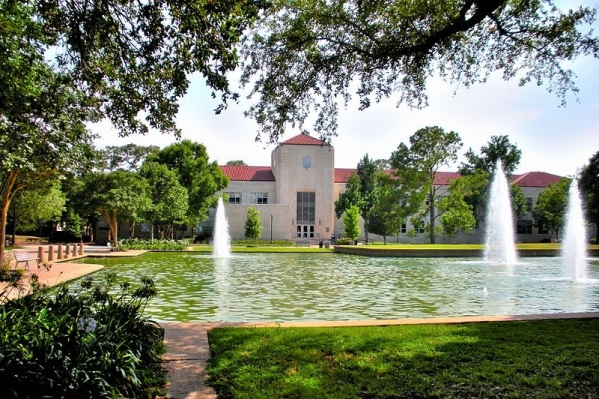https://uh.edu
Founded
1927Description
Founded in 1927, the University of Houston is a public research university in Texas, the fourth-largest city in the US.
It is one of four separate and distinct institutions in the University of Houston System, which includes the University of Houston–Clear Lake, the University of Houston–Downtown and the University of Houston–Victoria. All are stand-alone universities.
The University of Houston educates almost 50,000 students each year on both online and campus courses, of which there are about 300. It awards more than 8,000 degrees every year and has about 230,000 alumni.
Starting out as a junior college, it was formally recognised as a university in 1933. A law school was included more than a decade later, and today there are 25 research centres across its 667 acre campus.
There are a number of green spaces, sculptures and fountains, with buildings designed by both César Pelli and Philip Johnson.
Notable faculty staff include the playwright and three-time Pulitzer Prize winner Edward Albee, physics professor and National Medal of Science recipient Paul Chu and political activist and Nobel Peace Prize Laureate Jody Williams.
The student body is the second most ethnically diverse of all major research universities in the US, according to the university, hailing from 137 nations. It has some 500 student organisations and 16 intercollegiate sports teams, with about 6,000 students living on campus. Of its alumni, about 63 per cent live in the Houston area and 75 per cent live in the rest of Texas.
It had an endowment fund of about $700 million in 2013 and research expenditure of $141 million in 2014, with more than 40 research labs, centres and institutes.
Notable alumni include Bonnie J. Dunbar, a former Nasa astronaut, Alice Sebold, author of The Lovely Bones, and Jack Valenti, president of the Motion Picture Association of America.
Specific details
Location
212 Ezekiel Cullen Building



